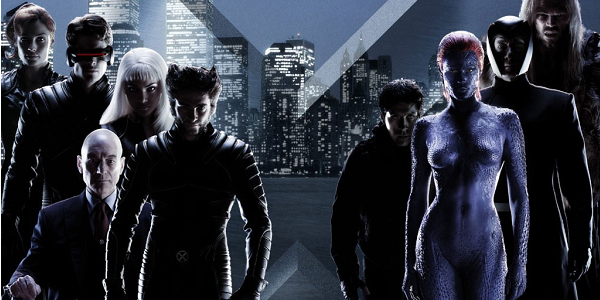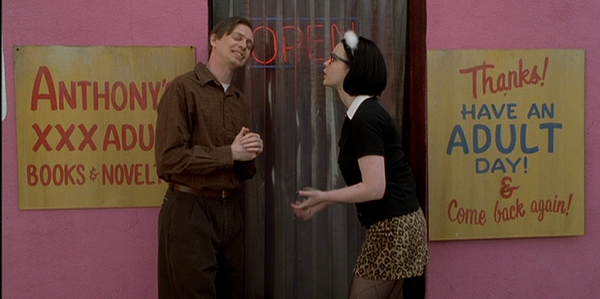2. The Mainstream Age - 2000-2008

20th Century Fox20th Century Fox acquired the rights to X-Men in 1994, the script going through a number of big name writers including John Logan, Joss Whedon and Michael Chabon before production really began in earnest after Blade's 1998 success. The Usual Suspects director Bryan Singer came on board and made the film work through a commitment to taking the source material seriously and exploring the comic's analogues with homophobia and the civil rights movement, all married crucially to a strong blockbuster filmmaking sensibility that saw its best expression in the thrilling attempted presidential assassination sequence that opened the film's sequel X-2: X-Men United in 2003. Singer's X-Men success was rapidly followed by a huge number of new comic book movies, many of which followed the template that Fox had achieved with X-Men. Directors were hired on the basis of critical or indie movie credibility rather than past big movie experience and invariably these directors were keen to speak of their passion for the source material. For successive summers there were new takes on classic heroes from some of Hollywood's most in demand directors. Sam Raimi's Spider-Man (2002), Ang Lee's Hulk (2003), Guillermo del Toro's Hellboy (2004), and Christopher Nolan's Batman Begins (2005) may have varied in quality and popularity but nobody can doubt their ambition or desire to take their material seriously. While some directors previously known for small scale indie movies were moving onto comic book blockbusters, others realised that comics had fertile material to be explored for more low key narratives. Slice of life comics like Ghost World, adapted on screen by Crumb director Terry Zwigoff in 2001, or autobiographical comics like Harvey Pekar's American Splendor, filmed with Paul Giamatti as Pekar in 2003, showed that the comic book film was not so much a genre as the comic book was a whole source medium for any genre. Even big name directors like Sam Mendes with Road to Perdition in 2002 and David Cronenberg with A History of Violence in 2003 looked to comics to provide new stories. An essential element of this new era of serious regard for comics as valid source material was a greater desire for authentic translation of the source to the screen, the inevitable extension of which was comics' creators being involved in the adaptations. Co-director credits for the likes of Sin City's Frank Miller and Persepolis' Marjane Satrapi ensured the movies reflected their comic creations in the smallest details. If anything else needed proving about the credibility of the comic book movie Nolan's 2008 Batman sequel The Dark Knight provided it with universal critical acclaim, box office returns of over $1 billion and an Oscar in one of the major categories (Heath Ledger's posthumous acting award for his chilling performance as the Joker). But it was another film that summer about a billionaire playboy gadget freak that would move things on to the next era: Marvel's Iron Man.
Key Films: Spider-Man (2002) & Ghost World (2001)

United ArtistsA pair of films to represent the diverse spread of the comic book movie in this period. X-Men may have opened the door to the superhero blockbuster becoming the summer mainstay it is today, but Spider-Man's bigger scale, ambition and success made superheroes what everyone was talking about. Meanwhile Ghost World's cool indie style showed a different path for the comic book movie and influenced film versions of everything from American Splendor to Scott Pilgrim.
 20th Century Fox20th Century Fox acquired the rights to X-Men in 1994, the script going through a number of big name writers including John Logan, Joss Whedon and Michael Chabon before production really began in earnest after Blade's 1998 success. The Usual Suspects director Bryan Singer came on board and made the film work through a commitment to taking the source material seriously and exploring the comic's analogues with homophobia and the civil rights movement, all married crucially to a strong blockbuster filmmaking sensibility that saw its best expression in the thrilling attempted presidential assassination sequence that opened the film's sequel X-2: X-Men United in 2003. Singer's X-Men success was rapidly followed by a huge number of new comic book movies, many of which followed the template that Fox had achieved with X-Men. Directors were hired on the basis of critical or indie movie credibility rather than past big movie experience and invariably these directors were keen to speak of their passion for the source material. For successive summers there were new takes on classic heroes from some of Hollywood's most in demand directors. Sam Raimi's Spider-Man (2002), Ang Lee's Hulk (2003), Guillermo del Toro's Hellboy (2004), and Christopher Nolan's Batman Begins (2005) may have varied in quality and popularity but nobody can doubt their ambition or desire to take their material seriously. While some directors previously known for small scale indie movies were moving onto comic book blockbusters, others realised that comics had fertile material to be explored for more low key narratives. Slice of life comics like Ghost World, adapted on screen by Crumb director Terry Zwigoff in 2001, or autobiographical comics like Harvey Pekar's American Splendor, filmed with Paul Giamatti as Pekar in 2003, showed that the comic book film was not so much a genre as the comic book was a whole source medium for any genre. Even big name directors like Sam Mendes with Road to Perdition in 2002 and David Cronenberg with A History of Violence in 2003 looked to comics to provide new stories. An essential element of this new era of serious regard for comics as valid source material was a greater desire for authentic translation of the source to the screen, the inevitable extension of which was comics' creators being involved in the adaptations. Co-director credits for the likes of Sin City's Frank Miller and Persepolis' Marjane Satrapi ensured the movies reflected their comic creations in the smallest details. If anything else needed proving about the credibility of the comic book movie Nolan's 2008 Batman sequel The Dark Knight provided it with universal critical acclaim, box office returns of over $1 billion and an Oscar in one of the major categories (Heath Ledger's posthumous acting award for his chilling performance as the Joker). But it was another film that summer about a billionaire playboy gadget freak that would move things on to the next era: Marvel's Iron Man.
20th Century Fox20th Century Fox acquired the rights to X-Men in 1994, the script going through a number of big name writers including John Logan, Joss Whedon and Michael Chabon before production really began in earnest after Blade's 1998 success. The Usual Suspects director Bryan Singer came on board and made the film work through a commitment to taking the source material seriously and exploring the comic's analogues with homophobia and the civil rights movement, all married crucially to a strong blockbuster filmmaking sensibility that saw its best expression in the thrilling attempted presidential assassination sequence that opened the film's sequel X-2: X-Men United in 2003. Singer's X-Men success was rapidly followed by a huge number of new comic book movies, many of which followed the template that Fox had achieved with X-Men. Directors were hired on the basis of critical or indie movie credibility rather than past big movie experience and invariably these directors were keen to speak of their passion for the source material. For successive summers there were new takes on classic heroes from some of Hollywood's most in demand directors. Sam Raimi's Spider-Man (2002), Ang Lee's Hulk (2003), Guillermo del Toro's Hellboy (2004), and Christopher Nolan's Batman Begins (2005) may have varied in quality and popularity but nobody can doubt their ambition or desire to take their material seriously. While some directors previously known for small scale indie movies were moving onto comic book blockbusters, others realised that comics had fertile material to be explored for more low key narratives. Slice of life comics like Ghost World, adapted on screen by Crumb director Terry Zwigoff in 2001, or autobiographical comics like Harvey Pekar's American Splendor, filmed with Paul Giamatti as Pekar in 2003, showed that the comic book film was not so much a genre as the comic book was a whole source medium for any genre. Even big name directors like Sam Mendes with Road to Perdition in 2002 and David Cronenberg with A History of Violence in 2003 looked to comics to provide new stories. An essential element of this new era of serious regard for comics as valid source material was a greater desire for authentic translation of the source to the screen, the inevitable extension of which was comics' creators being involved in the adaptations. Co-director credits for the likes of Sin City's Frank Miller and Persepolis' Marjane Satrapi ensured the movies reflected their comic creations in the smallest details. If anything else needed proving about the credibility of the comic book movie Nolan's 2008 Batman sequel The Dark Knight provided it with universal critical acclaim, box office returns of over $1 billion and an Oscar in one of the major categories (Heath Ledger's posthumous acting award for his chilling performance as the Joker). But it was another film that summer about a billionaire playboy gadget freak that would move things on to the next era: Marvel's Iron Man.  United ArtistsA pair of films to represent the diverse spread of the comic book movie in this period. X-Men may have opened the door to the superhero blockbuster becoming the summer mainstay it is today, but Spider-Man's bigger scale, ambition and success made superheroes what everyone was talking about. Meanwhile Ghost World's cool indie style showed a different path for the comic book movie and influenced film versions of everything from American Splendor to Scott Pilgrim.
United ArtistsA pair of films to represent the diverse spread of the comic book movie in this period. X-Men may have opened the door to the superhero blockbuster becoming the summer mainstay it is today, but Spider-Man's bigger scale, ambition and success made superheroes what everyone was talking about. Meanwhile Ghost World's cool indie style showed a different path for the comic book movie and influenced film versions of everything from American Splendor to Scott Pilgrim.